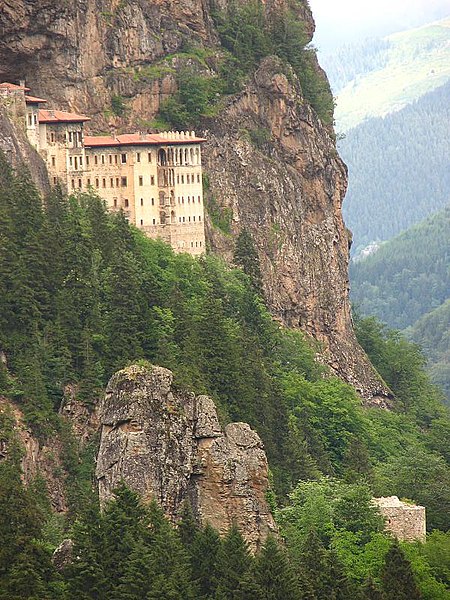Modern Greek literature is literature written in Modern Greek, starting in the late Byzantine era in the 11th century AD. It includes work not only from within the borders of the modern Greek state, but also from other areas where Greek was widely spoken, including Istanbul, Asia Minor, and Alexandria.
The headquarters of National Library of Greece
Manuscript of the Byzantine epic Digenes Akritas.
Dionysios Solomos is the national poet of Greece
Emmanuel Rhoides
Digenes Akritas is a medieval Greek romantic epic that emerged in the 12th-century Byzantine Empire. It is the lengthiest and most famous of the acritic songs; Byzantine folk poems celebrating the lives and exploits of the Akritai, the inhabitants and frontier guards of the empire's eastern Anatolian provinces. The acritic songs represented the remnants of an ancient epic cycle in Byzantium and, due to their long oral transmission throughout the empire, the identification of precise references to historical events may be only conjectural. Set during the Arab-Byzantine wars, the poem reflects the interactions, along with the military and cultural conflicts of the two polities. The epic consists of between 3,000 to 4,000 lines and it has been pieced together following the discovery of several manuscripts. An extensive narrative text, it is often thought of as the only surviving Byzantine work truly qualifying as epic poetry. Written in a form of vernacular Greek, it is regarded as one of its earliest examples, as well as the starting point of Modern Greek literature.

Manuscript of the epic of Digenes Akritas, National Library of Greece.
The Sumela Monastery in Trebizond where the first manuscript was discovered in 1868.
Digenes Akritas bearing a sword next to the slain dragon. Fragment of a 12th century Byzantine plate. Ancient Agora Museum, Athens.
Digenes Akritas and the dragon. 12th century Byzantine plate. Ancient Agora Museum, Athens.







